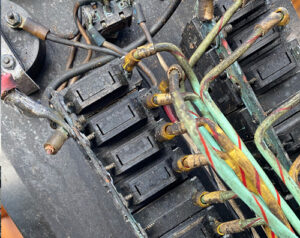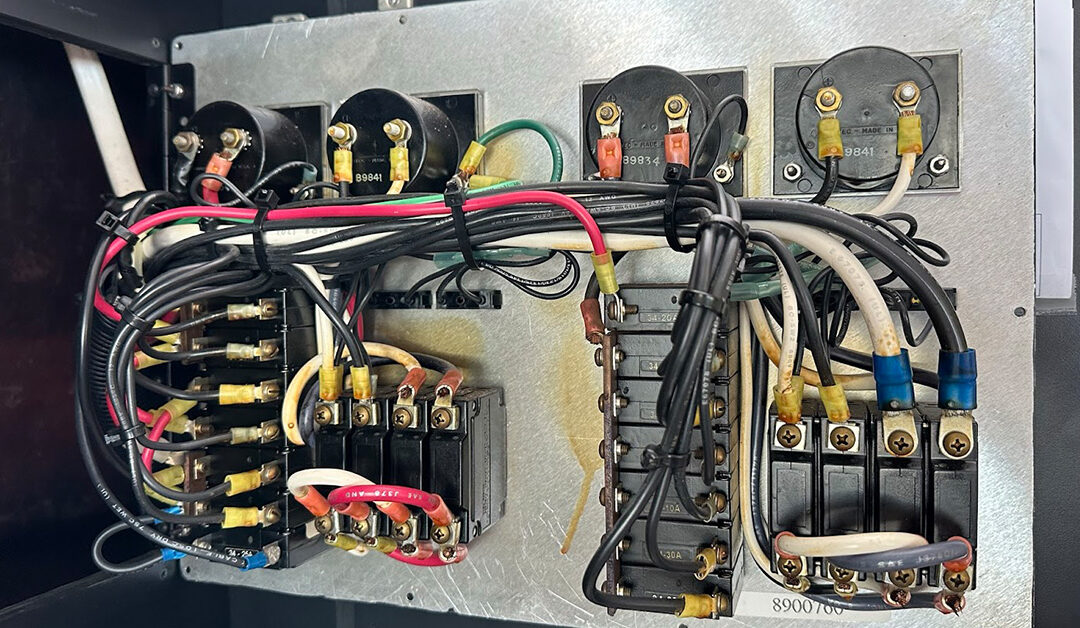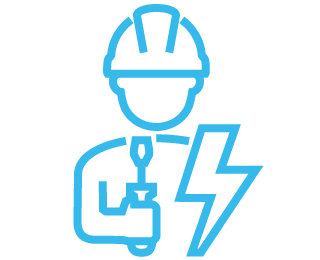Owning a boat is a rewarding experience, but it comes with its share of challenges. One common issue that many boat owners face is the tripping of onboard breakers.
If you’ve ever found yourself wondering why your breaker keeps tripping, you’re not alone. In this article, we’ll explore the most common causes behind this issue and provide practical solutions to help you enjoy a smoother sailing experience.
Why Circuit Breaker on Boat Keeps Tripping
1. Overloading the Circuit
 Breakers are designed to protect your boat’s electrical system from overload. When too many appliances or devices are connected to a single circuit, it can exceed the breaker’s capacity and trigger a trip. To avoid this, distribute your electrical load evenly across different circuits.
Breakers are designed to protect your boat’s electrical system from overload. When too many appliances or devices are connected to a single circuit, it can exceed the breaker’s capacity and trigger a trip. To avoid this, distribute your electrical load evenly across different circuits.
2. Faulty Appliances or Devices
A malfunctioning appliance or device can cause a short circuit, which leads to breaker trips. Inspect each device and replace or repair any that show signs of damage. Remember to unplug devices when not in use to prevent unnecessary strain on the circuit.
Water Intrusion: Boats are exposed to moisture, and water intrusion into your electrical system can lead to short circuits and breaker trips. Regularly inspect your wiring and connections for signs of corrosion, and invest in high-quality marine-grade components that are designed to withstand damp conditions.
3. Water Intrusion
Boats are exposed to moisture, and water intrusion into your electrical system can lead to short circuits and breaker trips. Regularly inspect your wiring and connections for signs of corrosion, and invest in high-quality marine-grade components that are designed to withstand damp conditions.
4. Wiring Issues
Faulty wiring, loose connections, or worn-out insulation can cause electrical problems. Regularly check your boat’s wiring for any signs of wear and tear. If you’re not comfortable with electrical work, consult a professional marine electrician.
5. Inadequate Wiring Size
Using undersized wires can lead to increased resistance and overheating, which may cause your breaker to trip. When installing or replacing wiring, ensure you’re using the appropriate wire gauge for the intended load.
6. Ground Faults
A ground fault occurs when a live wire comes into contact with a conductive surface, such as the boat’s hull. This can lead to a breaker trip and poses a safety risk. Installing ground fault circuit interrupters (GFCIs) can help prevent these incidents.
7. Aging Breakers
Breakers can wear out over time due to repeated tripping and use. If you have an older boat, consider inspecting and replacing breakers that show signs of wear or fail to reset properly.
8. External Factors
External factors such as power surges, lightning strikes, or fluctuations in shore power can also cause breakers to trip. Investing in surge protectors and using proper power management practices can help mitigate these risks.
Understanding the reasons behind your boat’s breaker trips is essential for maintaining a safe and functional electrical system on board. By following proper maintenance practices, distributing your electrical load, and addressing any issues promptly, you can minimize the likelihood of breaker trips and ensure a smoother sailing experience.
How to Troubleshoot and Fix Circuit Breaker
- Identify the Affected Circuit
- Unplug or Turn Off Devices
- Reset the Breaker
- Gradually Reconnect Devices
- Check for Signs of Damage
- Test Different Outlets
- Inspect Wiring and Connections
- Test GFCIs and AFCIs
- Consider Recent Changes
- Consult a Professional
Details for Each Troubleshooting Step:
1. Identify the Affected Circuit: Determine which specific circuit is causing the breaker to trip. Note down the devices or appliances connected to that circuit.
2. Unplug or Turn Off Devices: Unplug or turn off all devices and appliances connected to the circuit. This helps isolate whether the issue is caused by a particular device.
3. Reset the Breaker: Once all devices are disconnected, reset the tripped breaker by moving it to the “Off” position and then back to the “On” position. If it immediately trips again, there could be a more significant issue at play.
4. Gradually Reconnect Devices: Start by reconnecting one device at a time to the circuit. After each device is connected, turn it on and monitor the breaker. If the breaker trips when a specific device is connected or turned on, that device might be the cause of the problem.
5. Check for Signs of Damage: Inspect the power cords, plugs, and outlets for any visible signs of damage, such as frayed wires, exposed conductors, or burn marks. Replace or repair any damaged components.
6. Test Different Outlets: If your boat has multiple outlets on the same circuit, test whether the breaker trips when devices are plugged into different outlets. This can help determine if the issue is localized to a particular outlet.
7. Inspect Wiring and Connections: Carefully inspect the wiring and connections associated with the circuit. Look for loose wires, damaged insulation, or signs of corrosion. Tighten any loose connections and replace or repair damaged wiring.
8. Test GFCIs and AFCIs: If your boat’s electrical system includes ground fault circuit interrupters (GFCIs) or arc fault circuit interrupters (AFCIs), ensure they are functioning correctly. These devices provide extra protection against ground faults and arc faults.
9. Consider Recent Changes: Think about any recent changes or additions to your boat’s electrical system. New installations or modifications could be contributing to the breaker tripping.
10. Consult a Professional: If you’ve gone through these steps and are still unable to identify the cause of the breaker trips, or if you’re uncomfortable with electrical troubleshooting, it’s best to consult a professional marine electrician. They have the expertise and tools to diagnose and resolve complex electrical issues.
Conclusion on Fixing Circuit Breaker Tripping
Remember, safety is paramount when dealing with electrical systems. If at any point you feel uncertain or uncomfortable, it’s wise to seek professional assistance to ensure both your safety and the proper functioning of your boat’s electrical system. Contact us for further support
Contact Zisser Marine:


